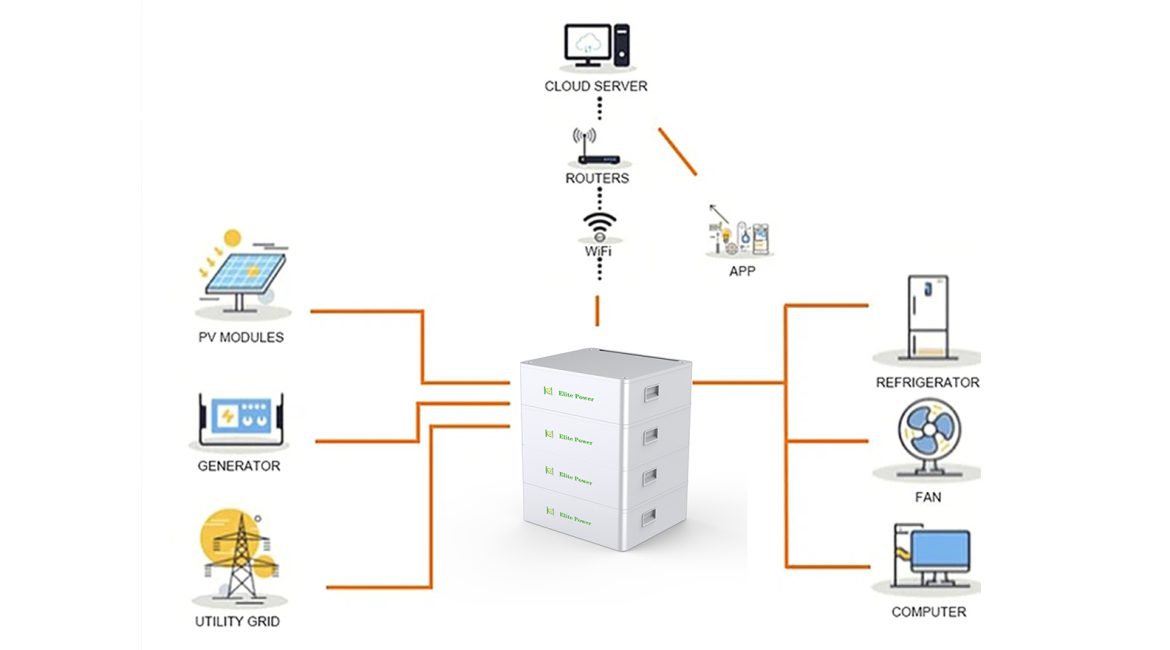In daily life, dependence on electricity has become an integral part of our lives. Whether it is lighting, electrical equipment or electronic products, they all require stable power support. However, power outages are a common problem that can be caused by a variety of reasons, including weather, equipment failure, or energy issues. In the face of power outages, home energy storage systems become a reliable solution.
Home energy storage systems are a method of storing and utilizing renewable energy to provide continuous power support for homes. Such systems typically include components such as solar panels, battery banks, inverters, and monitoring systems. Solar panels convert sunlight into electricity, which is stored in battery banks. The inverter converts the DC power stored in the battery bank into AC power for home use. The monitoring system can monitor the storage capacity and power usage of the battery in real time to ensure the operating effect of the system.
The advantage of energy storage systems is not only their ability to cope with power outages, but also their environmentally friendly and economical properties. First of all, the energy storage system uses renewable energy such as solar energy, does not produce harmful gases such as carbon dioxide, and is environmentally friendly. Second, by storing and utilizing renewable energy, households can reduce their reliance on the traditional power grid, reducing energy consumption and energy bills. At the same time, some regions also provide subsidies for households that adopt energy storage systems, further improving economic benefits.
There are several key factors to consider when choosing a home energy storage system. The first is the storage capacity of the system. Households should size storage capacity based on actual power needs to ensure the system can continue to provide power. The second is the scalability of the system. As energy demand increases, households may need to increase storage capacity. Therefore, a scalable system can meet the needs of the family in the future. In addition, the quality and reliability of the system are also very important factors. Choosing a reliable supplier and brand can ensure the long-term operating results of the system and the convenience of maintenance.
When using energy storage systems on a daily basis, there are steps households can take to optimize the system’s effectiveness. The first is to reasonably arrange the use of electricity. According to the energy storage capacity of the battery, families can reasonably arrange the use time of electrical equipment and try to avoid the use of high-power electrical appliances during peak periods. Secondly, pay attention to the maintenance and upkeep of the system. Regularly check the replenishment and discharge of the battery to maintain the normal operation of the battery. In addition, system failures and abnormal situations are handled in a timely manner to ensure the normal operation of the system.
Home energy storage systems are a reliable solution to the problem of power outages. It not only provides reliable power support, but also has environmentally friendly and economical advantages. Choosing the right energy storage system, and using and maintaining it properly will bring convenience and stability to your family’s life.

